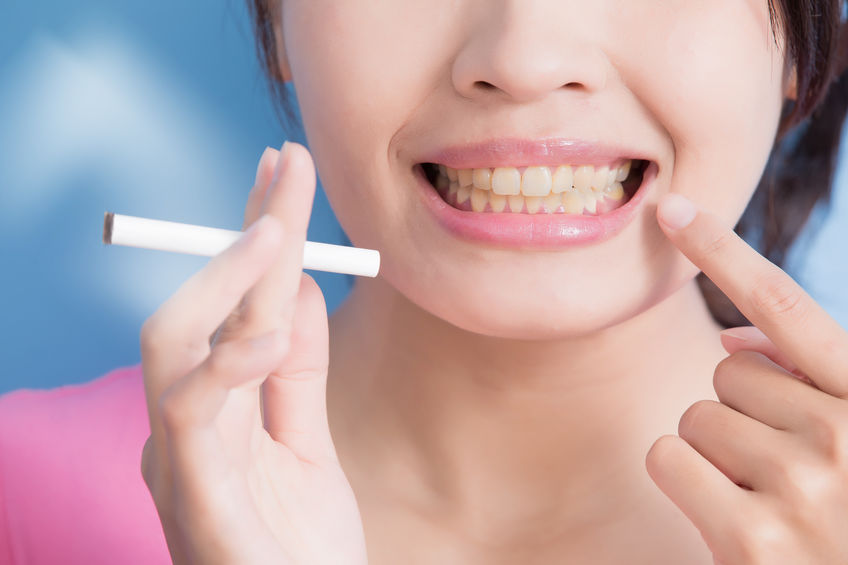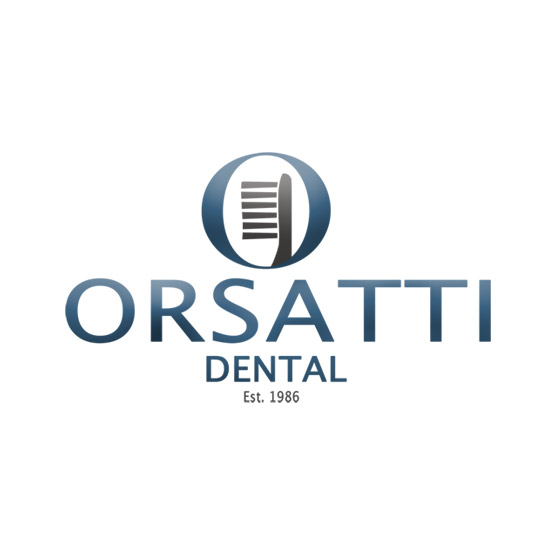
San Antonio Dentist – Orsatti Dental
You know smoking is bad for your health, so it should be no surprise that cigarettes and chewing tobacco are also harmful to your oral health. For one, tobacco products can cause bad breath, but that’s only the beginning.
We have known for the last 50 years that people who smoke cigarettes are much more likely to develop—and die from—certain diseases than people who don’t smoke. More than 20 million Americans have died because of smoking since the first Surgeon General’s Report on Smoking and Health was issued in 1964. Adults are not the only people who suffer because of smoking. Today, about half of all the children between ages 3 and 18 years in this country are exposed to cigarette smoke regularly.
Many smokers say they choose to continue smoking despite knowing the health risks.The reality is that smoking is not usually a choice. For most smokers, tobacco use is an addiction, and nicotine is the primary drug in tobacco that causes addiction. It only takes 10 seconds for the nicotine from one puff of smoke to reach the brain. This rapid delivery of nicotine from the lungs to the brain is one of the reasons that cigarettes are so addictive. And once it gets there, nicotine causes cells in the brain to release dopamine. One of the effects of dopamine released in the brain is to create a heightened sense of alertness and contentment. Over time, the brain cells of smokers are changed to expect the regular bursts of extra dopamine that result from smoking. When a smoker tries to quit, these brain changes cause strong cravings for more nicotine. Some of today’s cigarettes are more addictive than those from earlier decades. In part, this is a result of chemicals added to today’s cigarettes that cause the nicotine to reach the brain more quickly.
Lung-based diseases – lung cancer, emphysema, chronic bronchitis – usually come to mind when thinking about the health consequences of smoking. But because cigarette smoking can affect nearly every organ in your body, it’s not surprising that your oral health can take a hit too.
Here’s what you need to know about smoking and oral health in order to stay healthy.
The adverse effects of tobacco on oral health are well documented. These include both common and rare conditions and diseases, some harmless and some life-threatening. The World Health Organization notes symptoms such as “staining and discoloration of teeth and dental restorations, halitosis, effect on taste and smell acuity, wound healing, periodontal disease, success of dental implants, oral mucosal disease…smoker’s palate, potentially malignant lesions and oral cancer.”
Oral cancer involves the gradual mutation of healthy cells in your mouth and can occur a number of ways. Smoking plays a significant role in the many cases of oral cancer diagnosed each year, according to the Oral Cancer Foundation. A University of California study showed that 8 out of 10 patients with oral cancer were smokers. Whenever you inhale, the harmful chemicals in tobacco smoke first pass through your mouth and throat before reaching your lungs. Through time and repeat exposure, these chemicals cause changes to your oral cavity, which can lead to oral cancer.
Nevertheless, this is a preventable disease. By avoiding smoking and other high-risk behaviors and seeing a San Antonio dentist regularly for routine checkups, you can keep oral cancer out of your future.
Periodontal Disease
Periodontal disease, an infection of the gums and bone surrounding the teeth, comes from buildups of harmful oral bacteria and can lead to tooth loss. But bacteria are not the only culprits when it comes to gum disease. The Center for Disease Control and Prevention (CDC) reports that smokers have more than twice the risk for gum disease compared to non-smokers.
Smoking interferes with your immune system, making it difficult for your body to fight off conditions like gum infections. Periodontal treatment may not even have the same successful outcome for a smoker as a nonsmoker, because smoking makes it harder for your gums to heal.
Other Side Effects
Besides the more serious risks of oral cancer and gum disease, according to the American Dental Association (ADA) Mouth Healthy site, smoking can also affect your sense of taste and smell and delay your recovery after a tooth extraction or other dental procedure. In addition, the tar from cigarette smoke stains your teeth, causes bad breath and can discolor your tongue. The only way to remove these stains is with a professional cleaning in the dentist’s office.
The CDC reports that smoking is the leading preventable cause of death and disease in the United States. So whether you smoke cigarettes, cigars or a smokeless tobacco product, the fact remains: There really is no healthy level of exposure in a tobacco product, even second-hand. Your risk for tobacco-related diseases, including those affecting your oral health, depends on how long you’ve smoked and the number of cigarettes smoked each day.
Many are aware of the problems that smoking cigarettes can cause to your mouth, but new research suggests that these issues may be present in other products. All tobacco products, not just cigarettes, could be harmful to periodontal health, according to research published in the May issue of The Journal of the American Dental Association.
The article, “Tobacco-Use Patterns and Self-Reported Oral Health Outcomes: A Cross-sectional Assessment of the Population Assessment of Tobacco and Health Study, 2013-2014,” found disease diagnosis was more likely to be reported among nearly all tobacco product users compared with those who had never used tobacco. This includes the use of popular e-cigarettes. Similarly, the odds of gingival disease treatment also were higher among all users, except for current experimenters, users of smokeless tobacco products and hookah users.
“Dental professionals need to understand how tobacco use affects oral health, dental treatment and overall health and well-being,” said corresponding author Dr. Benjamin W. Chaffee, who is an assistant professor at the University of California, San Francisco School of Dentistry. “Our results suggest that all forms of tobacco, not just cigarettes, are associated with worse oral health. Dentists asking only about cigarette smoking may be missing a substantial portion of patients who are using tobacco and suffering poor health outcomes because of it.” The researchers used data from the Population Assessment of Tobacco and Health study, which includes the self-reported tobacco use and health outcomes of 32,320 U.S. adults.
The highest prevalence of diagnosis was reported by current users of pipes, e-cigarettes and cigarettes, according to the article. Treatment was most common among current pipe and e-cigarette users, long-term quitters, product switchers and recent quitters.
“Regarding e-cigarettes specifically, one must remember that this study was based on cross-sectional data and self-reported outcomes,” Chaffee said. “Therefore, it should not be taken as proof that e-cigarettes cause oral disease. However, the association deserves further study, especially given recent increases in e-cigarette use.”
Quitting is the only way to decrease your risk of these and other tobacco-related health problems. The addictive quality of nicotine, which is found in cigarettes, cigars and chewing tobacco, can make this especially difficult. That’s why it’s important to have a plan and a support network, people to help you stick to your plan. Write down your reasons for quitting. Exercising, chewing gum and keeping yourself occupied can help you quit. Talk to your dentist or doctor to see if the medications available would help you to stop using tobacco.
Orsatti Dental is a San Antonio Dentist office, serving all of San Antonio! Orsatti Dental is located at 15303 Huebner Rd, San Antonio, TX 78248.
Contact Orsatti Dental in San Antonio to learn more dental care, or to schedule an appointment with us!

